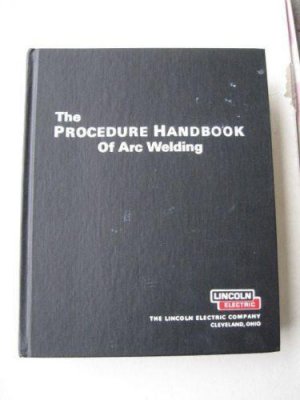- Joined
- Aug 4, 2015
- Messages
- 291
I was bored so I figured I would type this out as food for thought.
We may or may not consider the source or quality of our filler rod or wire when at the TSC or welding supply picking up stuff for the current project. But should we? In truth TIG filler material really runs the gambit in overall quality and price. I am guessing that most of you will go pay good money for material for a project. And depending on the project, some of that steel is expensive. So why when you can buy a pound or two of vacuum sealed metallurgic ally verified filler rod that will become O-1 tool steel or 8620 armorers steel or what ever you are working with. As opposed to the cheap stuff that can be no better than coat hanger wire and is copper coated. Ever wonder WHY the wire is copper coated? Think it's some super high tech alloy that make your Harbor Freight TIG machine weld as good as a Miller or Lincoln? It ain't. The copper is there as a lubricant. They use copper to lube the wire dies when they size the wire to it's final diameter. Does it matter? Well, I am not a metallurgist. I know that the copper stays in the weld puddle though. SO what does it do to that weld. Is it contaminated with the copper? Not sure, but if could be. And what was the source of the wire to begin with. Is it virgin alloy steel? Does it match the material I am welding? Is it old pickup trucks and discarded lathe castings and vices from Harbor Freight? We really don't know. Now to be clear, If I am welding a utility trailer together, I don't much care. The thing is built from mild steel that may or may not have some rust on it already and most trailers are overbuilt or underbuilt to begin with. They either are heavy enough to carry a bus load of concrete blocks or they will bend as soon as you put a mower on them.. I really have never seen the in between when it comes to back yard fabricated trailers. But, if you are doing gunsmith work. Building a machine tool that you have possibly thousands of dollars invested in between money and man hours, why would you not spend the extra money for the good filler material? And for those of you that TIG a lot of stainless and can't ever seem to get the black to go away and get those pretty rainbow colored welds like in the youtube videos, try a better filler rod. It seemed to make a difference for me.
We may or may not consider the source or quality of our filler rod or wire when at the TSC or welding supply picking up stuff for the current project. But should we? In truth TIG filler material really runs the gambit in overall quality and price. I am guessing that most of you will go pay good money for material for a project. And depending on the project, some of that steel is expensive. So why when you can buy a pound or two of vacuum sealed metallurgic ally verified filler rod that will become O-1 tool steel or 8620 armorers steel or what ever you are working with. As opposed to the cheap stuff that can be no better than coat hanger wire and is copper coated. Ever wonder WHY the wire is copper coated? Think it's some super high tech alloy that make your Harbor Freight TIG machine weld as good as a Miller or Lincoln? It ain't. The copper is there as a lubricant. They use copper to lube the wire dies when they size the wire to it's final diameter. Does it matter? Well, I am not a metallurgist. I know that the copper stays in the weld puddle though. SO what does it do to that weld. Is it contaminated with the copper? Not sure, but if could be. And what was the source of the wire to begin with. Is it virgin alloy steel? Does it match the material I am welding? Is it old pickup trucks and discarded lathe castings and vices from Harbor Freight? We really don't know. Now to be clear, If I am welding a utility trailer together, I don't much care. The thing is built from mild steel that may or may not have some rust on it already and most trailers are overbuilt or underbuilt to begin with. They either are heavy enough to carry a bus load of concrete blocks or they will bend as soon as you put a mower on them.. I really have never seen the in between when it comes to back yard fabricated trailers. But, if you are doing gunsmith work. Building a machine tool that you have possibly thousands of dollars invested in between money and man hours, why would you not spend the extra money for the good filler material? And for those of you that TIG a lot of stainless and can't ever seem to get the black to go away and get those pretty rainbow colored welds like in the youtube videos, try a better filler rod. It seemed to make a difference for me.


